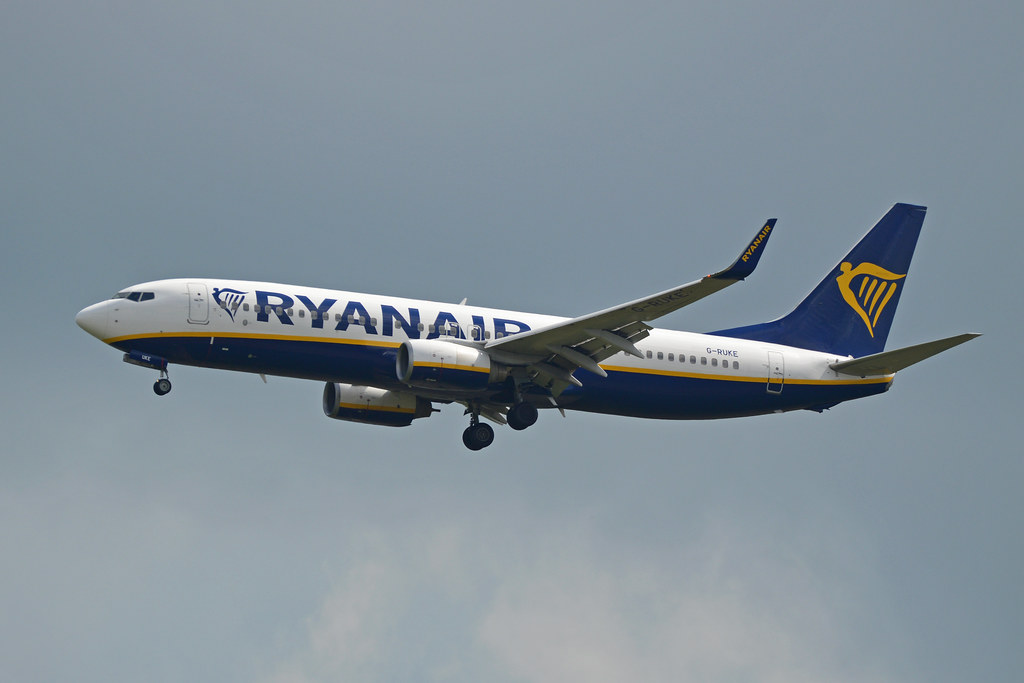Ryanair is an Irish low-cost airline that was founded in 1984. Today, it is the largest airline in Europe in terms of passenger numbers, and it operates over 2,500 flights per day to more than 200 destinations across Europe, North Africa, and the Middle East.
History and Development
Ryanair was founded in 1984 by Tony Ryan, a businessman from Ireland. The airline began operations with a single aircraft flying between Waterford in Ireland and Gatwick Airport in London. Over the years, Ryanair expanded its route network and grew its fleet, becoming one of the largest low-cost airlines in Europe.
Ryanair’s business model is based on offering low fares and charging for additional services, such as baggage check-in and seat selection. The airline has also been known for its controversial advertising campaigns and its CEO Michael O’Leary, who is known for his outspoken views and unconventional management style.
Fleet and Operations
Ryanair operates a fleet of over 450 aircraft, all of which are Boeing 737s. The airline has ordered additional aircraft from Boeing, including the new Boeing 737 MAX, which it plans to use to further expand its route network.
Ryanair operates out of several bases across Europe, including Dublin, London Stansted, and Rome Ciampino. The airline has a strong presence in many popular tourist destinations, such as Malaga, Palma de Mallorca, and Alicante.
Passengers on Ryanair flights are charged for additional services, such as checked baggage and seat selection. The airline also offers a variety of other ancillary services, such as car hire and travel insurance.
Despite its reputation for low fares and no-frills service, Ryanair has been recognized for its strong safety record. The airline has won several awards for safety and reliability, and it has a dedicated team of maintenance and engineering professionals who ensure that its aircraft are maintained to the highest standards.
Ryanair operates flights to more than 200 destinations across Europe, North Africa, and the Middle East. The airline’s extensive route network covers major cities and popular tourist destinations such as London, Paris, Barcelona, Rome, Amsterdam, Dublin, Berlin, Lisbon, Madrid, Marrakech, Athens, and many others. Ryanair’s focus is primarily on connecting secondary and regional airports to major cities, making it a popular choice for budget-conscious travelers looking for affordable flights to a wide range of destinations.
Ryanair is a low-cost airline that offers very competitive ticket prices, but many additional services that are often included in the fares of traditional airlines are not free. Some examples of services that Ryanair charges for include:
Checked baggage: Passengers are allowed to bring one small bag on board free of charge, but any additional baggage or larger items must be checked in for a fee.
Seat selection: Passengers who want to choose their seats in advance must pay a fee, otherwise they will be assigned a seat at check-in.
Priority boarding: Passengers who want to board the plane early and have access to overhead storage space must pay for priority boarding.
Food and drinks: Ryanair does not offer complimentary food or drinks on board, and passengers must pay for any snacks or beverages they wish to purchase.
Airport check-in: Passengers who check in at the airport instead of online must pay a fee.
It’s important to note that many of these fees can be avoided or minimized by carefully reading and following Ryanair’s baggage and check-in policies, and by planning ahead to avoid paying for unnecessary services. However, passengers who require additional services or amenities may find that the total cost of their Ryanair flight is higher than they initially expected.
Conclusion
Ryanair is one of the largest and most successful low-cost airlines in the world. With its focus on low fares and cost efficiency, the airline has been able to offer affordable travel to millions of passengers across Europe. While its business model may not be for everyone, there is no denying that Ryanair has had a major impact on the airline industry, and it is likely to continue to play a significant role in the years to come.
Photo by : HawkeyeUK
